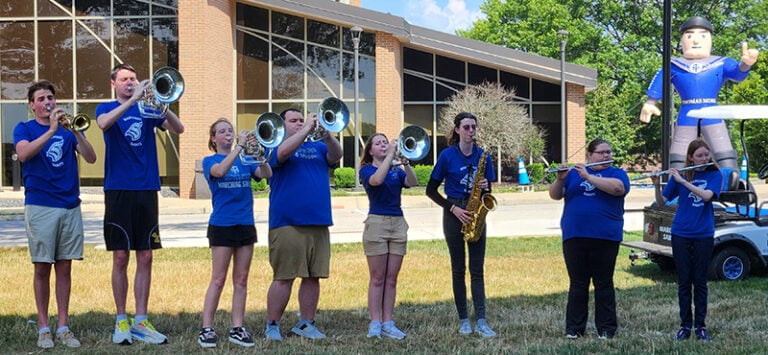By Nadia Ramlagan
Public News Service
Experts say sedentary lifestyles, food insecurity, and other factors are driving an increase in childhood diabetes in Kentucky.
Research shows nationwide, the number of young people with type 2 diabetes jumped by 77% during the first year of the pandemic, compared with the two years prior.
Leslie Scott is an associate professor and pediatric nurse practitioner at the University of Kentucky’s Barnstable Brown Diabetes Center.
She said she’s seeing more diagnoses of both type 1 and type 2 diabetes in kids.

She said the younger a child is when diagnosed, the greater the odds of developing co-morbid conditions – such as high blood pressure, kidney disease, and neuropathy later in life.
“Some of the symptoms are very vague and difficult to kind of tease out,” said Scott. “But if you have a child that’s drinking a lot more fluids than they normally have, if they’re losing weight unexpectedly, if they’re going to the bathroom a lot – those are some things that you would want to certainly seek an evaluation for.”
According to the American Diabetes Association, 352,000 Americans under age 20 are estimated to have diagnosed diabetes.
Diabetes was the eighth leading cause of death in the U.S. in 2021, and was responsible for more than $300 billion in direct medical costs in 2022 alone.
Ben Chandler is the CEO of the Foundation for a Healthy Kentucky, whose new campaign aims to increase community prevention awareness and help families spot warning signs of the condition in children.
He said a more active lifestyle and maintaining healthy weight can go a long way toward reducing risk.
“We also don’t have the proper screening for young people,” said Chandler. “We could have more community events that could include free screening. So there are things that we can do, and there are things that schools can do.”
Scott added that school nurses can play a critical role in spotting diabetes early on in kids, and improving overall health.
“There are guidelines for screening for risk of Type 2 diabetes in children,” said Scott, “and that begins either at puberty, at the age of 10 – where they want to start children that are overweight or obese, you want to start monitoring for some of those risks.”
Living with diabetes can be stressful and isolating for kids.
Scott said Camp Hendon – a diabetes summer camp based in Louisville – provides a supportive and educational environment, as well as a normal summer camp experience for kids who have to regularly check their blood glucose levels and administer insulin.

















